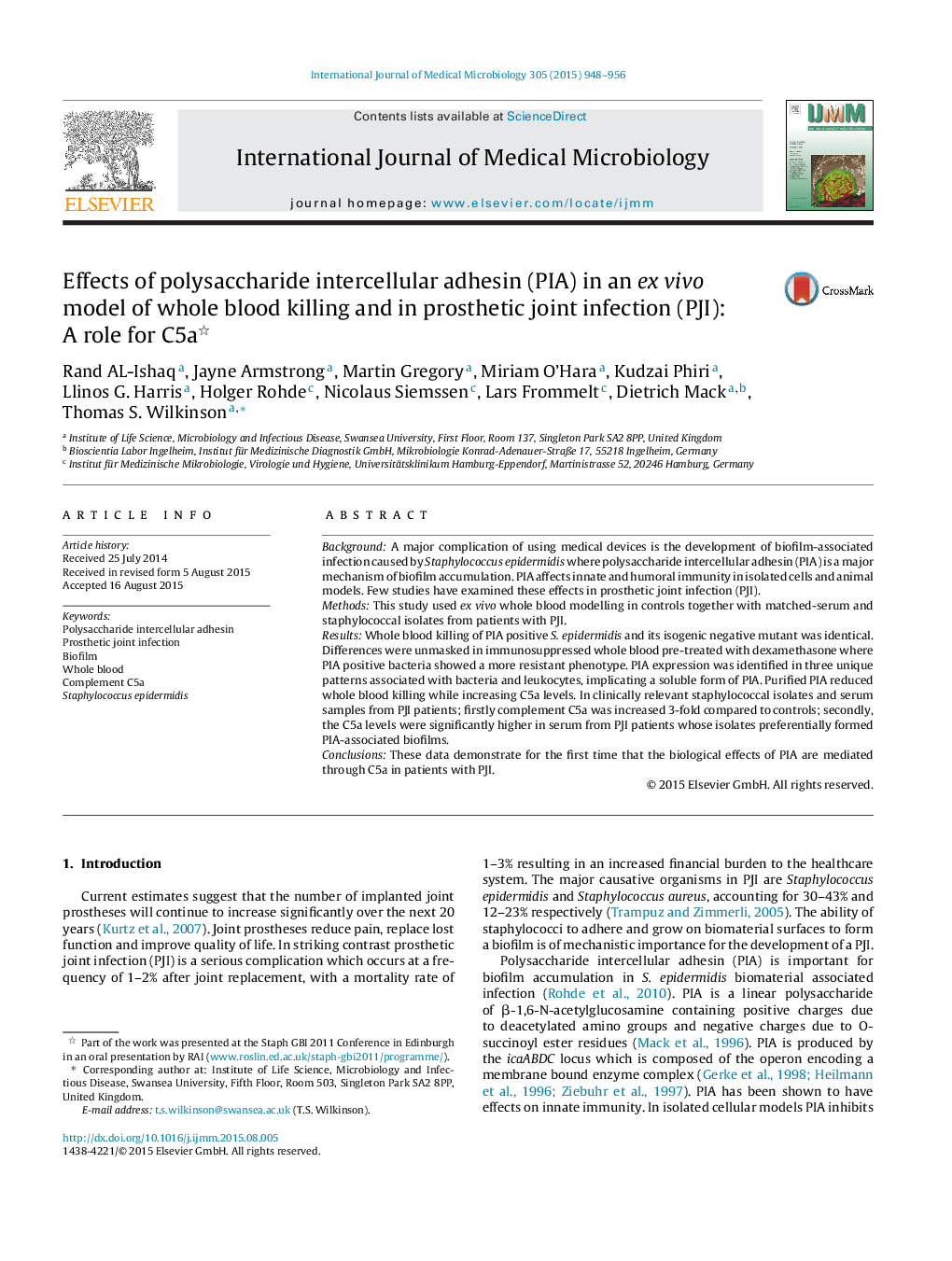| Article ID | Journal | Published Year | Pages | File Type |
|---|---|---|---|---|
| 2054002 | International Journal of Medical Microbiology | 2015 | 9 Pages |
BackgroundA major complication of using medical devices is the development of biofilm-associated infection caused by Staphylococcus epidermidis where polysaccharide intercellular adhesin (PIA) is a major mechanism of biofilm accumulation. PIA affects innate and humoral immunity in isolated cells and animal models. Few studies have examined these effects in prosthetic joint infection (PJI).MethodsThis study used ex vivo whole blood modelling in controls together with matched-serum and staphylococcal isolates from patients with PJI.ResultsWhole blood killing of PIA positive S. epidermidis and its isogenic negative mutant was identical. Differences were unmasked in immunosuppressed whole blood pre-treated with dexamethasone where PIA positive bacteria showed a more resistant phenotype. PIA expression was identified in three unique patterns associated with bacteria and leukocytes, implicating a soluble form of PIA. Purified PIA reduced whole blood killing while increasing C5a levels. In clinically relevant staphylococcal isolates and serum samples from PJI patients; firstly complement C5a was increased 3-fold compared to controls; secondly, the C5a levels were significantly higher in serum from PJI patients whose isolates preferentially formed PIA-associated biofilms.ConclusionsThese data demonstrate for the first time that the biological effects of PIA are mediated through C5a in patients with PJI.
